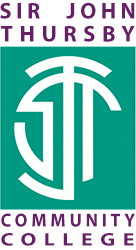Topic 1 Year 7 Chemistry
| Chemistry | |||
| Topic | Matter 1 | ||
| No of lessons | 14 | ||
| When is it happening | Year 7 Term 1 | ||
| What will students learn | Know about the arrangement and movement of particles in different states. Describe and identify the processes involved during changes of state and explain properties and changes of state using a particle diagram. Students must be able to define: particle, particle model, diffusion, gas pressure, density, evaporation, boil, condense, melt freeze and sublime. Students must also know what a pure substance is and how to identify it. Examples of mixtures and ways to separate them using their physical properties. Students must also know the definitions of: Solvent, solute, dissolve, solution, soluble, insoluble, solubility, pure substance, mixture, filtration, distillation, evaporation and chromatography. | ||
| Key Knowledge that students should know at the end of 'Topic' | This is the knowledge that students will meet for the first time in this topic | The three states of matter and the processes of changing states. The water cycle. How particles are arranged within the particle model. Diffusion of gases and liquids. They will also learn about exceptions and limitations to the accepted model. How to present and use data. How to draw the particle model. Students will learn how to separate mixtures using a range of techniques. They will also learn how to identify a pure/impure substance using data. How to identify unknown samples using chromatography. Students will use graph skills to plot and analyse solubility of salt/sugar. | |
| This is knowledge that students may have met before but will need to deepen their understanding | Students should already be able to identify solids, liquids or gases, name some examples and describe some of their properties. Students may have experience of simple separation techniques such as filtration. They will have knowledge of melting, freezing and boiling. | ||
| Key Skills that students should be able to demonstrate at the end of 'Topic' | This is the skills that students will meet for the first time in this topic | Accurate diagram for the particle model. Use scientific equipment to separate mixtures; including Evaporation, distillation and chromatography. | |
| This is skills that students may have met before but will need to develop | Students may not have done practical investigations using scientific equipment in KS2. Lab safety, bunsen burner skills. How to analyse a chromatogram. | ||
| Key vocabulary that students should know and understand |
Particle, particle model, water cycle, diffusion, gas pressure, pure, density, evaporation, condense, sublime, solvent, solute, dissolve. |
||
| The Big Question | What are particles and how can I separate them? | ||
|
Key questions that students should be able to answer at the end of the 'Topic'
|
What is the Water Cycle? | ||
| What is the particle model? | |||
| Can a solid change into a gas? | |||
| How can you smell pizza cooking? | |||
| Can liquids behave badly? | |||
| Solid, liquid or gas? | |||
| What is a mixture? | |||
| Can orange juice be pure? | |||
| How would you survive in the jungle? | |||
| How could chemistry catch a criminal? | |||
| Is salt or sugar more soluble? | |||
| Who changed the will? | |||
